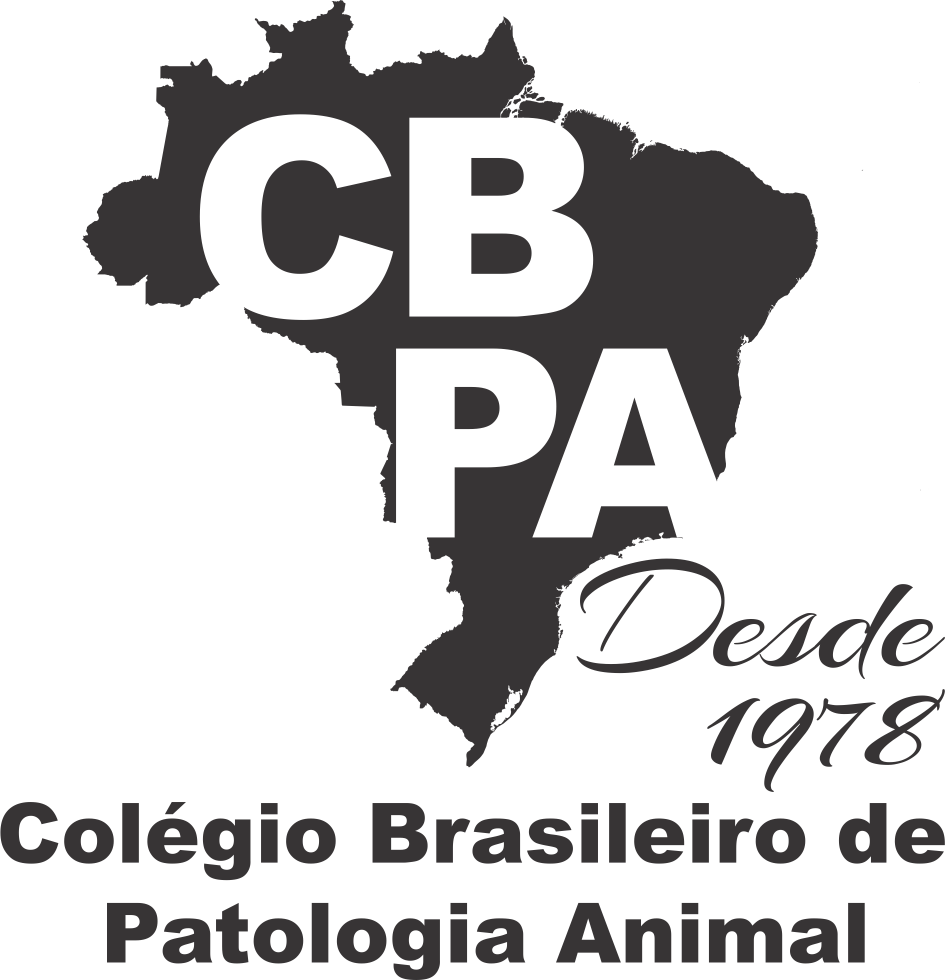Resultado da pesquisa (1)
Termo utilizado na pesquisa Boghossian M.R.
#1 - Aspectos clínico-patológicos da intoxicação experimental pelas sementes de Crotalaria mucronata (Fabaceae) em bovinos, p.149-156
Abstract in English:
ABSTRACT.- Boghossian M.R., Peixoto P.V., Brito M.F. & Tokarnia C.H. 2007. [Experimental poisoning by Crotalaria mucronata (Fabaceae) seeds in cattle.] Aspectos clínico-patológicos da intoxicação experimental pelas sementes de Crotalaria mucronata (Fabaceae) em bovinos. Pesquisa Veterinária Brasileira 27(4):149-156. Projeto Sanidade Animal Embrapa/UFRRJ, Seropédica, RJ 23890-000, Brazil. E-mail: mailto:mubogho@hotmail.com
Experiments were performed to define the clinical and pathological picture of prolonged administration of the seeds of Crotalaria mucronata Desv. to cattle, in order to obtain additional information about this toxicosis. The ground seeds were administered orally to 9 bovines. Doses of 1g/kg/day, 2g/kg/day, 3g/kg/day each in one bovine, and 5g/kg/day in two of three bovines, given for 61- 63 days, did not cause poisoning. Doses of 5g/kg, in one bovine, 7.5g/kg in two bovines and 10g/kg in one bovine, given for 47-61 days, caused symptoms between 47 and 80 days after the first administration and caused death between 3 hours and 5 days after the onset of symptoms. The main clinical signs were positive venous pulse of the jugular vein, abdominal breath, tachycardia, loss of appetite, dry feces, sub-mandibular edema and weakness. Bovines that did not die, were slaughtered 8 or 9 months after first administration. At necropsy pulmonary paleness, hydropericardium, hydrothorax, hydroperitoneum, mesenteric edema, augmented hepatic consistency, discoloration of the liver, right cardiac ventricle dilatation and ruminal wall edema were seen. The main histological lesions were thickening of the alveolar walls and of the arterioles with narrowing of their lumen, and periarteriolar fibrosis, besides hepatic and cardiac lesions of minor importance. It is concluded, that the lesions caused by ingestion of the seeds of C. mucronata over a long period are caused by the difficulties of blood passage through the pulmonar vessels due to fibrosis and thickening of the arteriolar walls through the pneumotoxic action of the plant.
Abstract in Portuguese:
ABSTRACT.- Boghossian M.R., Peixoto P.V., Brito M.F. & Tokarnia C.H. 2007. [Experimental poisoning by Crotalaria mucronata (Fabaceae) seeds in cattle.] Aspectos clínico-patológicos da intoxicação experimental pelas sementes de Crotalaria mucronata (Fabaceae) em bovinos. Pesquisa Veterinária Brasileira 27(4):149-156. Projeto Sanidade Animal Embrapa/UFRRJ, Seropédica, RJ 23890-000, Brazil. E-mail: mailto:mubogho@hotmail.com
Experiments were performed to define the clinical and pathological picture of prolonged administration of the seeds of Crotalaria mucronata Desv. to cattle, in order to obtain additional information about this toxicosis. The ground seeds were administered orally to 9 bovines. Doses of 1g/kg/day, 2g/kg/day, 3g/kg/day each in one bovine, and 5g/kg/day in two of three bovines, given for 61- 63 days, did not cause poisoning. Doses of 5g/kg, in one bovine, 7.5g/kg in two bovines and 10g/kg in one bovine, given for 47-61 days, caused symptoms between 47 and 80 days after the first administration and caused death between 3 hours and 5 days after the onset of symptoms. The main clinical signs were positive venous pulse of the jugular vein, abdominal breath, tachycardia, loss of appetite, dry feces, sub-mandibular edema and weakness. Bovines that did not die, were slaughtered 8 or 9 months after first administration. At necropsy pulmonary paleness, hydropericardium, hydrothorax, hydroperitoneum, mesenteric edema, augmented hepatic consistency, discoloration of the liver, right cardiac ventricle dilatation and ruminal wall edema were seen. The main histological lesions were thickening of the alveolar walls and of the arterioles with narrowing of their lumen, and periarteriolar fibrosis, besides hepatic and cardiac lesions of minor importance. It is concluded, that the lesions caused by ingestion of the seeds of C. mucronata over a long period are caused by the difficulties of blood passage through the pulmonar vessels due to fibrosis and thickening of the arteriolar walls through the pneumotoxic action of the plant.









